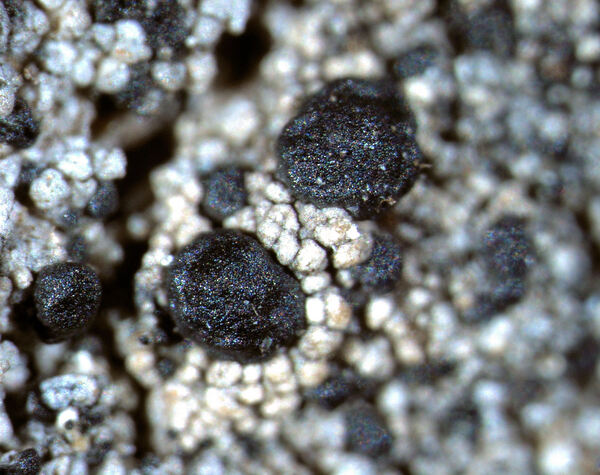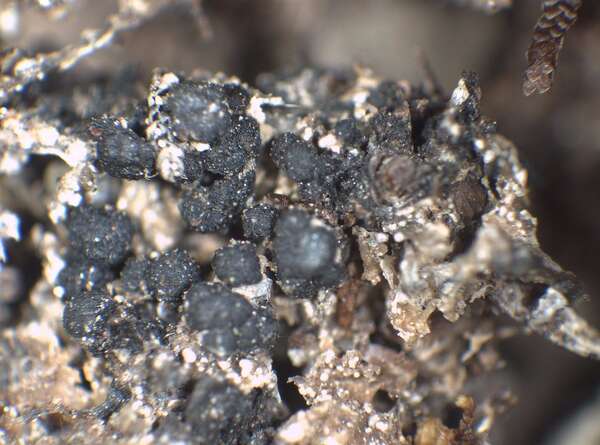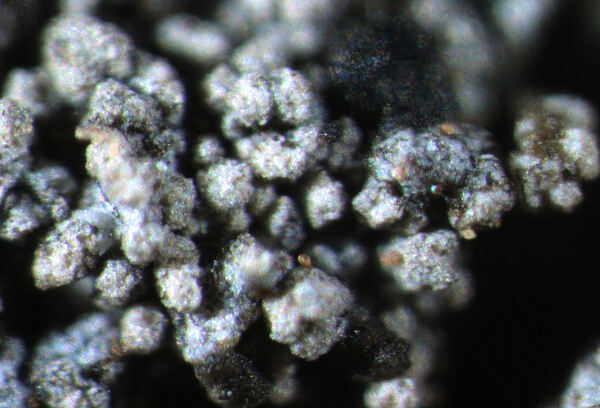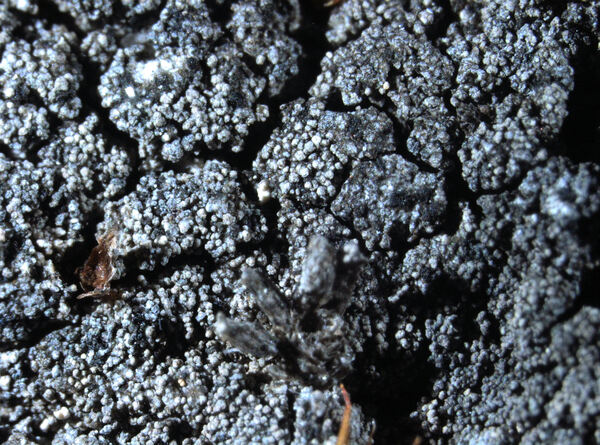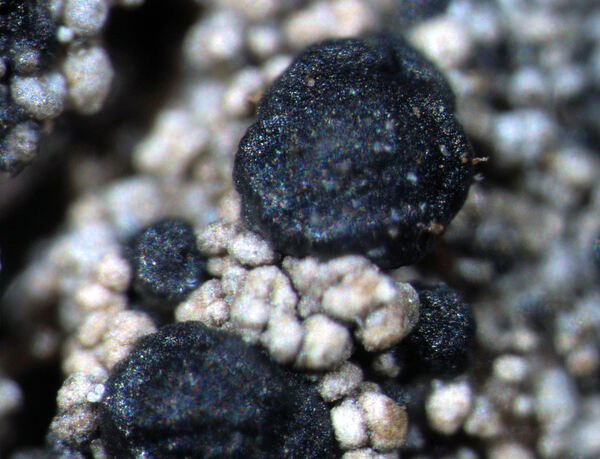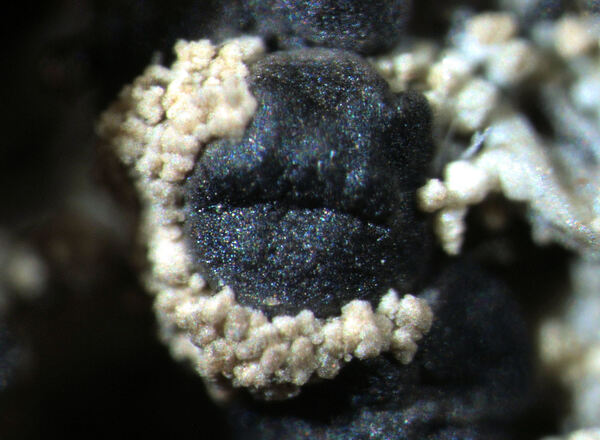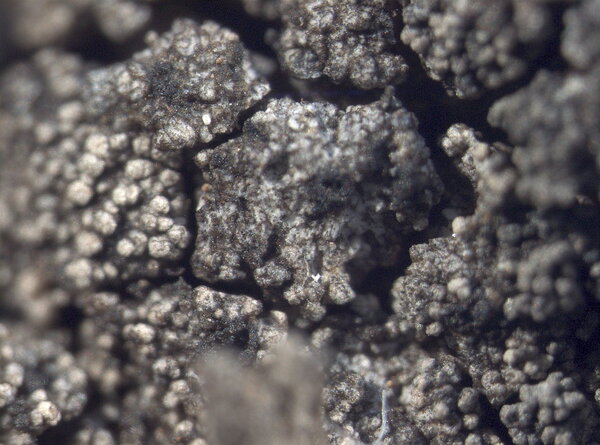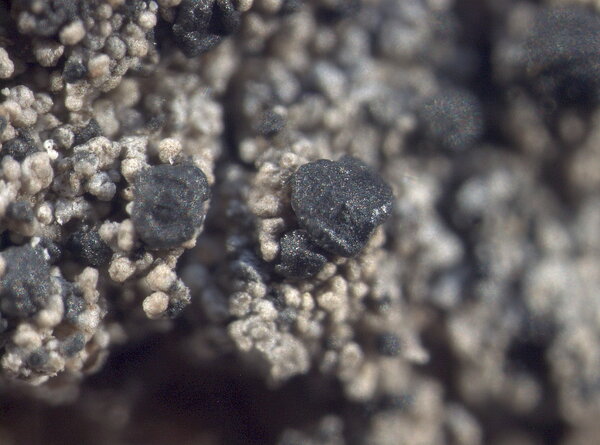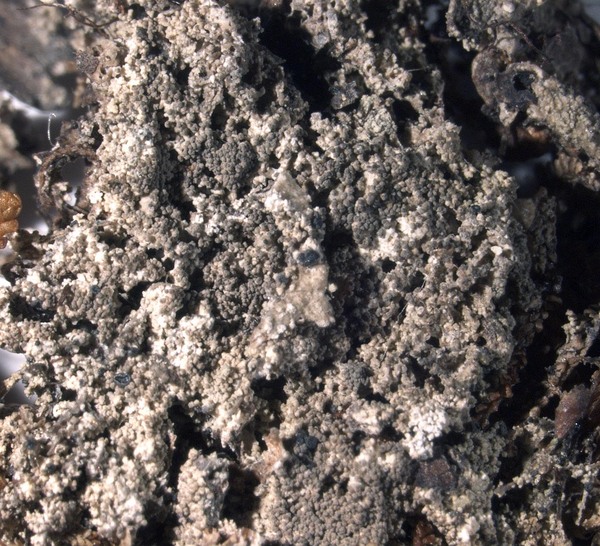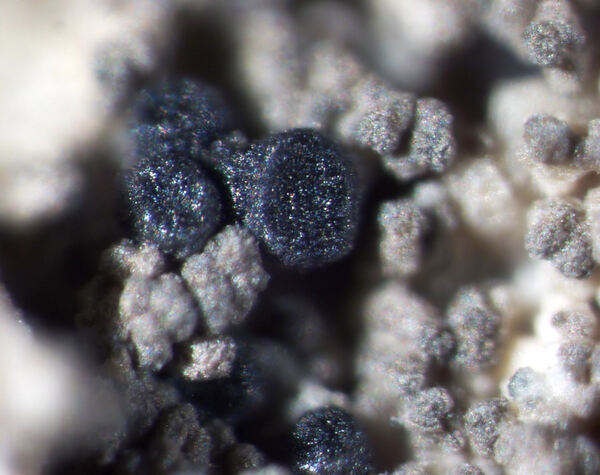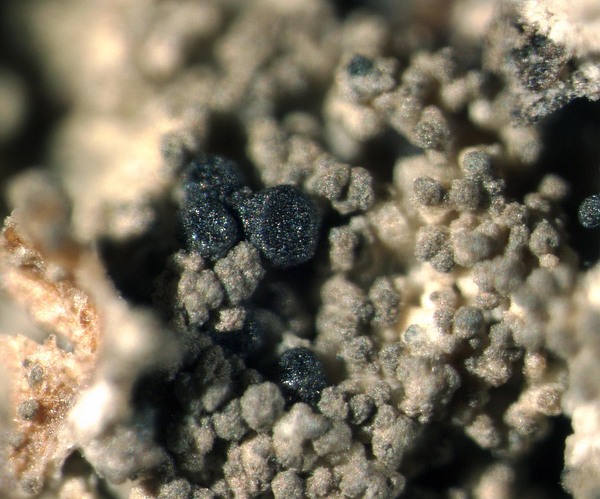Helocarpon pulverulum (Th. Fr.) Türk & Hafellner
Carinthia II, 183: 738, 1993. Basionym: Lecidea crassipes f. pulverula Th. Fr. - Lichenogr. Scand., 1: 250, 1874.
Synonyms: Helocarpon crassipes auct. eur. merid. non Th. Fr.; Micarea crassipes auct. eur. merid. non (Th. Fr.) Coppins
Description: Thallus crustose, episubstratic, rather thick, composed of densely packed, pulverulent granules, whitish to partially grey-brown or grey. Apothecia biatorine, black, 0.2-0.6 mm across, strongly constricted at base and sometimes substipitate, with a flat to finally convex disc, and an up to 0.05 mm thick, finally excluded proper margin. Proper exciple thin, of radially arranged hyphae, dark olivaceous green and K+ green in outer part, colourless within; epithecium green to olive and K+ green, or purple-brown and K+ purple; hymenium colourless or pale purple, c. 50 μm high, I+ blue turning red; paraphyses coherent, thin, mostly simple; hypothecium dark purplish brown, K+ slowly purplish, N+ purple-red. Asci 8-spored, cylindrical-clavate, the I+ blue tholus with a wide, I+ dark blue tube structure. Ascospores 1-celled or 1-septate, oblong to subfusiform, rarely ellipsoid, 9-17(-21) x (2.5-)3-5 μm. Pycnidia black, sessile, to 0.15 mm across, the wall c. 10-17 μm thick, green-black (K- or K+ green-intensifying) in upper part, dark red-brown (K-) in lower part; conidiogenous cells elongate-ampulliform, strongly tapered towards the neck. Conidia short-bacilliform, to 5.5 μm long. Photobiont micareoid, the cells 4-7 µm across. Spot tests: K-, C-, KC-, P-. UV-. Chemistry: thallus without lichen substances.
Growth form: Crustose
Substrata: soil, terricolous mosses, and plant debris
Photobiont: green algae other than Trentepohlia
Reproductive strategy: mainly sexual
Commonnes-rarity: (info)
Alpine belt: very rare
Subalpine belt: rare
Montane belt: absent
Dry submediterranean belt: absent
Humid submediterranean belt: absent
Padanian area: absent
pH of the substrata:
1 2 3 4 5
Solar irradiation:
1 2 3 4 5
Aridity:
1 2 3 4 5
Eutrophication:
1 2 3 4 5
Poleotolerance:
0 1 2 3
Altitudinal distribution:
1 2 3 4 5 6
Rarity
absent
extremely rare
very rare
rare
rather rare
rather common
common
very common
extremely common
Loading data...
Occurrence data
Predictive map
Growth form: Crustose
Substrata: soil, terricolous mosses, and plant debris
Photobiont: green algae other than Trentepohlia
Reproductive strategy: mainly sexual
Commonnes-rarity: (info)
Alpine belt: very rare
Subalpine belt: rare
Montane belt: absent
Dry submediterranean belt: absent
Humid submediterranean belt: absent
Padanian area: absent
pH of the substrata:
| 1 | 2 | 3 | 4 | 5 |
Solar irradiation:
| 1 | 2 | 3 | 4 | 5 |
Aridity:
| 1 | 2 | 3 | 4 | 5 |
Eutrophication:
| 1 | 2 | 3 | 4 | 5 |
Poleotolerance:
| 0 | 1 | 2 | 3 |
Altitudinal distribution:
| 1 | 2 | 3 | 4 | 5 | 6 |
Rarity
absent
extremely rare
very rare
rare
rather rare
rather common
common
very common
extremely common
Loading data...
Occurrence data
Predictive map


